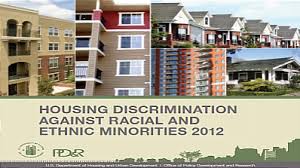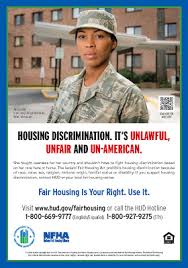US SUES FLA OVER DISABLED KIDS IN NURSING HOMES
- At July 25, 2013
- By fhfla
- In News
 0
0
MIAMI– The U.S. Justice Department filed a lawsuit against Florida on Monday, accusing the state of unnecessarily institutionalizing about 200 disabled children in nursing homes and cutting services that would allow them to receive care at home.
Federal investigators visited six nursing homes around the state and identified about 200 children who didn’t need to be there and could benefit from care at home or elsewhere in the community. They found that once in the facilities, many children stay for years, some growing up in the nursing homes.
The investigation found cold, hospital-like facilities where children share common areas with elderly patients and rarely leave or go outside. Investigators noted that the children are not exposed to social, educational or recreational activities critical to development. They also said educational opportunities are limited to as little as 45 minutes a day and that many of the children’s families live hundreds of miles away, according to the lawsuit.
Parents say they have no other option because the state has slashed in-homes services, including nursing care for critically ill children on ventilators and feeding tubes.
Investigators also said Florida is violating the federal Americans with Disabilities Act and infringing on the children’s civil rights by segregating and isolating them. The average length of stay is three years, federal officials said. Many of the children are physically disabled but mentally cognizant.
For the full story story go to:
http://www.palmbeachpost.com/ap/ap/kids-family/feds-sue-fla-for-keeping-kids-in-nursing-homes/nYy43/
NEW BILL INTRODUCED TO PROHIBIT HOUSING DISCRIMINATION BASED ON MILITARY SERVICE
- At July 18, 2013
- By fhfla
- In News
 0
0
Washington, CT – Today, U.S. Senator Richard Blumenthal (D-Conn.) and U.S. Representative Derek Kilmer (D-Wash.) introduced the Veterans and Service Members Employment Rights and Housing Act of 2013, a bill that would provide veterans and service members with the same protected status as many other groups and prohibit discrimination on the basis of military service or veteran status. Under Blumenthal and Kilmer’s bill, veterans and service members facing discrimination could appeal their grievances to the Equal Employment Opportunity Commission, and the Fair Housing Act would be amended to add military status as being protected under the law for service members or veterans who want to rent or purchase a home.
Misperceptions about veterans have led some employers and landlords to hesitate when looking at a veteran’s application. In a 2012 Center for a New American Security study, over 50 percent of interviewed employers cited “negative stereotype” as a reason why they might not hire a veteran. AMVETS – a veterans service organization that has worked extensively to combat this issue – has found numerous examples of people who were fired or denied rent applications because of their military or veteran status.
“AMVETS is appreciative of Senator Blumenthal and Congressman Kilmer’s leadership in introducing this important and long overdue legislation that will grant American veterans freedom from discrimination in both the workplace and housing,” AMVETS National Executive Director Stewart Hickey said. “The same rights these veterans fought to preserve for their fellow Americans will now be afforded to them upon passage of this bill.”
While many states – including Connecticut – have legal protections for veterans, and some states – including Washington – have already made veterans a protected class, there is no comprehensive federal law that protects all those who have served in uniform. For example, although the Uniformed Services Employment and Reemployment Rights Act (USERRA) is in effect, far too many Reservists still return home to find that they have missed out on a job promotion, or that some employers do not want to hire them because they are wary of their future deployments. In addition, USERRA does not cover housing discrimination at all. Blumenthal and Kilmer’s bill would protect all military service members and prohibit housing discrimination.
HOUSING DISCRIMINATION CONTINUES, STUDY SHOWS
- At July 18, 2013
- By fhfla
- In News
 0
0

RACIAL AND ETHNIC MINORITIES FACE MORE SUBTLE HOUSING DISCRIMINATION
HUD study finds decline in blatant discrimination while unequal treatment persists
WASHINGTON – Blatant acts of housing discrimination faced by minority homeseekers continue to decline in the U.S., yet more subtle forms of housing denial stubbornly persist, according to a new summary study released today by the U.S. Department of Housing and Urban Development and the Urban Institute. Housing Discrimination Against Racial and Ethnic Minorities 2012 finds African-Americans, Hispanics and Asians learn about fewer housing options than equally qualified whites.
Real estate agents and rental housing providers recommend and show fewer available homes and apartments to minority families, thereby increasing their costs and restricting their housing options. The study concludes this is a national, not a regional, phenomenon.
“Fewer minorities today may be getting the door slammed in their faces, but we continue to see evidence of housing discrimination that can limit a family’s housing, economic and educational opportunities,” said HUD Secretary Shaun Donovan. “It’s clear we still have work to do to end housing discrimination once and for all.”
“The forms of discrimination documented by this study are very difficult for victims to detect,” said the Urban Institute’s Margery Turner. “To detect housing discrimination today, HUD and local fair housing organizations need to conduct proactive testing, especially in the sales market, where discrimination appears higher than in the rental market.”
This is the fourth in a series of national studies sponsored by HUD roughly each decade to measure housing discrimination in rental and sales markets, since 1979. It finds that while minorities today are rarely denied an appointment to see an advertised unit, less blatant forms of unequal treatment persist.
“The study represents a glass that’s half full. While discrimination may not be as obvious as it was in the 1960s, the study reminds us that we still aren’t living up to the principles upon which this nation was founded,” said Bryan Greene, HUD Acting Assistant Secretary for Fair Housing and Equal Opportunity. “HUD is committed to ensuring that every American has equal access to housing opportunities.”
The Urban Institute, which conducted the study, employed a “paired testing” methodology in which researchers compared the treatment of white and minority homeseekers in a nationally representative sample of 28 metropolitan areas.* Of the more than 8,000 paired tests, two trained individuals (one white and the other black, Hispanic, or Asian), contacted a housing provider to inquire about a unit randomly selected from recently advertised homes and apartments. The two testers in each pair were matched on gender, age and family composition and assigned the same financial characteristics. With each tester presenting as unambiguously and equally well qualified to rent or buy the advertised unit, testers independently recorded the treatment they experienced, including information about all the homes or apartments recommended and shown.
Key findings of the report include:
- Taking into account the ability to make an appointment, the availability of units and homes, and the agent’s willingness to show units, minority renters and homebuyers are told about and shown fewer homes and apartments.
Black
- Black renters who contact agents about recently advertised housing units learn about 11% fewer available units and are shown roughly 4% fewer units.
- Black homebuyers who contact agents about recently advertised homes for sale learn about 17% fewer available homes and are shown about 18% fewer units.
Asian
- Asian renters who contact agents about recently advertised housing units learn about 10% fewer available units and are shown nearly 7% fewer units.
- Asian homebuyers who contact agents about recently advertised homes for sale learn about 15% fewer available homes and are shown nearly 19% fewer units.
Hispanic
- Hispanic renters who contact agents about recently advertised housing units learn about 12% fewer available units and are shown roughly 7% fewer units.
- The difference in treatment for Hispanic homebuyers is not statistically significant.
Among the measures of change over the most recent decade, only discrimination for availability of the advertised unit has declined. Black renters today appear less likely than a decade ago to be told that advertised units are unavailable. Asian renters are more likely than a decade ago to be shown fewer units but they are less likely to experience adverse treatment when making future arrangements with the agent. Changes in other measures of rental discrimination are not statistically significant. For changes in sales discrimination over the most recent decade, the authors find less evidence of meaningful progress. The only statistically significant change is for Hispanics, who are less likely than a decade ago to be denied financing help compared to equally-qualified white homebuyers.
Baltimore City Housing Authority Reaches Settlement for not Providing Proper Housing Accommodation
- At July 13, 2013
- By fhfla
- In News
 0
0
The U.S. Department of Housing and Urban Development (HUD) has announced a major settlement agreement with the Housing Authority of Baltimore City (HABC) after a resident complained the housing authority failed to make a reasonable accommodation for a family with a young son with special needs. HABC will pay $150,000 to the public housing resident as part of the Voluntary Compliance Agreement.
The resident alleged that the housing authority failed to grant her request to be transferred to a larger unit that was closer to family support. The resident and her young son are persons with disabilities who needed a larger unit near family members who could assist in caring for them. The Fair Housing Act requires housing providers to make reasonable accommodations in their rules, policies, practices or services when needed to provide persons with disabilities an equal opportunity to use or enjoy a dwelling. In addition, Section 504 of the Rehabilitation Act of 1973 makes it unlawful for any federally funded housing program to deny program benefits to an individual based on a disability.
“Requests for reasonable accommodations that are needed by persons with disabilities must be taken seriously and receive timely responses,” said Jane C.W. Vincent, HUD’s Regional Administrator of the mid-Atlantic region. “HUD will continue to investigate the causes of delays in granting reasonable accommodation requests and take action when we determine that they were unnecessary.”




